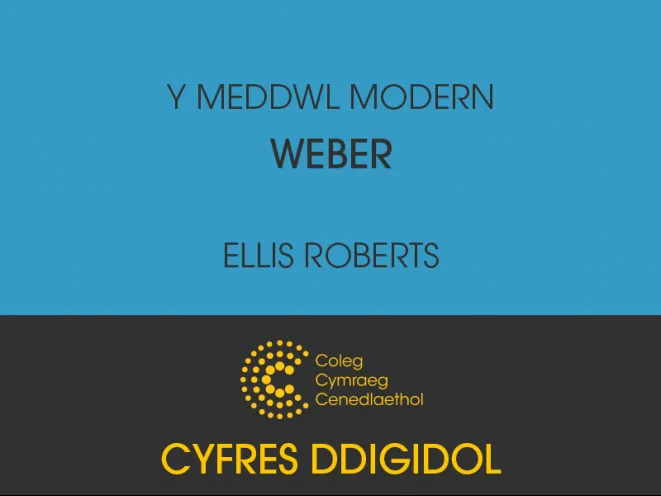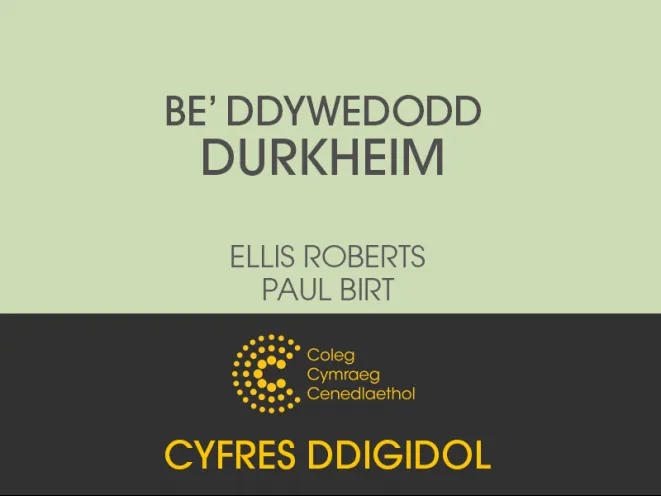This article considers the out-migration of young people from the Welsh-speaking heartlands in terms of their aspirations and hopes for the future. The original doctoral research (2014), is based on Hywel Jones’ (2010) work, which argues that young people born outside of Wales are four times more likely to migrate from Wales than young people born here. The research attempts to establish the main factors that affect rates of out-migration among young people born outside of Wales and those born into non-native families. The article concludes that the main drivers of rates of out-migration among this group are factors such as sense of belonging and the extent of community integration, rather than solely economic factors. In particular, it examines how culture, nationality, and considerations pertaining to the Welsh language have an impact on this trend, which has important implications in terms of the linguistic retention of the ‘traditional’ Welsh speaking areas.
‘Beth yw’r ots gennyf i am Gymru?’: The out-migration and aspirations of young people from the Welsh heartland...
Implications of changes in the age profiles of Welsh speakers
Aitchison and Carter’s analyses of the Census over the last decades have succeeded in making the main trends concerning the spatial distribution of Welsh known to everyone with an interest in the future of the language. Even so, some aspects remain unexamined. This paper is an attempt to give a different view of the trends by presenting a number of new analyses. In the first part, language production between 1991 and 2001 that is the effect of the education system, is examined. It is shown that the introduction of the National Curriculum in Gwent led to the biggest changes. In the second part, the geographical distribution of Welsh-speakers is looked at, especially those areas where more than 70% could speak Welsh. Some indices are introduced in order to quantify the situation and to explain the significance of those areas. Lastly, the implications of spatial distribution (or social network) to the use of Welsh is discussed by consideration of a little probability theory.
Welsh as a job requirement: An acceptable step from a liberal perspective?
Welsh as a job requirement: An acceptable step from a liberal perspective?
Policies introduced to revive the prospects of minority languages have often been the source of substantial disquiet. At times, objections to these policies are expressed in moral terms, with certain measures being accused of transgressing normative principles such as individual freedom and equal opportunity. Given their nature, these moral objections pose interesting questions for liberals. Therefore, how should liberals respond? This article will explore this question by focusing on one controversial aspect of language policy in Wales: the steps taken to set Welsh-language requirements for some jobs in the public sector. This is a practice which has generated substantial debate, with opponents claiming that it undermines the liberal commitment to equality of opportunity in the field of employment and, in particular, transgresses the principle of appointing on the basis of merit. Do such arguments stand up to scrutiny? Do minority language requirements in the field of employment go beyond what liberals would consider acceptable, or can a coherent defence that is clearly rooted within a liberal framework be developed?
The effect of language on physical rehabilitation: A study of the influence of language on the effectiveness o...
In an area of Wales where 50% of the population is bilingual one community physical rehabilitation service had no Welsh-speaking therapists. An internationally standardised outcome measure was used to assess the effectiveness of rehabilitation in this area. This revealed that Welsh speaking patients had significantly poorer results from rehabilitation than non-Welsh speakers (p<0.05), while there was no significant difference where the therapists were bilingual. The results suggest that therapists’ ability to speak patients’ first language impacts on therapy effectiveness. The percentage of individuals who could speak Welsh referred (by health or social care professionals) was compared with the percentage of Welsh speakers which would have been anticipated given the percentage in the general population. Significantly fewer Welsh speakers were referred to the rehabilitation service than the anticipated percentage (p<0.001). Whilst this suggests professionals’ inability to speak Welsh may impact negatively on access to services for Welsh speakers, there may be other multifactorial psycho-social reasons to consider.
'One Cry Four Voices': The influence of choral singing on health and welfare in Wales
Since the Nineteenth Century, choral singing has played a prominent part in Welsh culture and society. In the latter part of the Twentieth Century, there were increasing demands to consider the influences of quality of life and well-being on health. As a result, there is a growing field of research that considers the role of the community arts, and choral singing in particular, as social capital, and the way in which they can influence personal and social health and well-being. Due to this growing recognition, this article will consider research that examines the relationship between amateur choir-singing in Wales – as both a musical and social event – and general health and well-being.
(Citizenship, the Welsh Language Board, and marketing the Welsh language)
This paper offers a brief examination of the approach taken by the Welsh Language Board, as the principal language policy and planning body in Wales, to aspects of prestige planning and the Welsh language. It describes how devolution, and the recent, first ever, national review by the Welsh Assembly Government of Welsh language policy, provide the immediate context for the work of the Welsh Language Board. The key policy document resulting from that review, Iaith Pawb, is critically analysed and the relationship to it of prestige planning is identified. The Welsh Language Board’s practice of prestige planning is discussed in relation to the discourses of neo-liberalism and post-colonialism in a way that highlights the Board’s focus on consumers rather than citizens.
Y Meddwl Modern: Weber – Ellis Roberts
Max Weber is recognised as one of the foremost founders of modern sociology. This volume places him in the tradition of sociology and outlines some of his major contributions: his idea of 'verstehen' or 'sociological imagination', his involvement in the great debate about the relationship between capitalism and the Protestant religion, and his 'ideal types' or definitions of the basics of particular regimes.
Y Meddwl Modern: Marx – Howard Williams
An illustration of the life of Karl Marx: his ideas, the roots of his philosophy and his influence on the world.
Y Meddwl Modern: Durkheim – Huw Morris Jones
Emile Durkheim was the first to hold a university chair in sociology, and his ideas remain of fundamental importance to all who want to understand the origins of the subject. He adopted the image of society as an organism, each part of which has a particular role to play in ensuring the well-being of the whole body. His ideas include an analysis of the social origins of religion, in particular the suggestion that any religious worship is 'worship of society'; its emphasis on what he called 'anomie' as the root of dispute and unrest in the life of an individual and society; and his original and important study of suicide as a social phenomenon. His influence is seen in fields as diverse as criminology on the one hand and literary criticism on the other.
E-lawlyfrau Syniadau Gwleidyddiaeth ('Political Ideas E-books')
Digital resources introducing the core ideas, concepts and principles of Politics.
Be Ddywedodd Durkheim – Ellis Roberts a Paul Birt
Introduction to the ideology of sociologist Emile Durkheim in his own words, translated into Welsh. Durkheim believed that it was possible to create a science to study sociology, and was one of the main founders of modern sociology. According to Durkheim, an individual and his or her actions are controlled by society. He also studied the role of religion in society.










